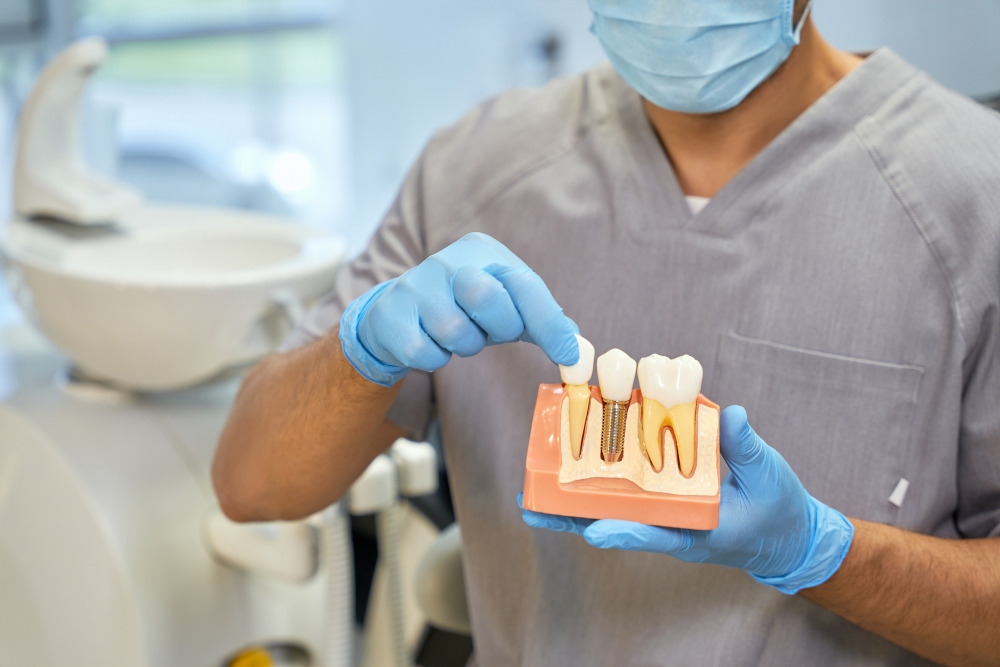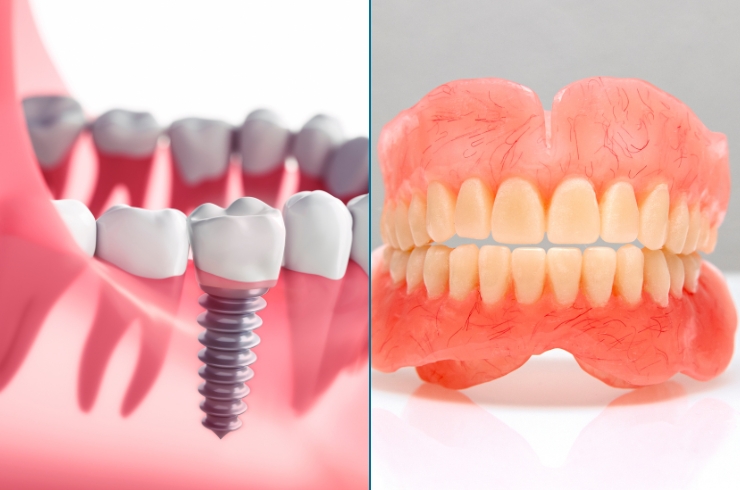(817) 465-3454
5 Signs You May Need Dental Implants

A captivating smile is a universal language that transcends barriers, but when dental issues arise, it can become a source of self-consciousness. Dental implants have emerged as a transformative solution, offering a permanent and natural-looking remedy for missing teeth. However, many individuals may need to be made aware of the signs indicating the need for dental implants. In this comprehensive guide, we will delve into the five crucial signs that suggest dental implants could be the key to restoring not just your smile but also your confidence and oral health.
Understanding Dental Implants
Dental implants are artificial tooth roots made of titanium that are surgically placed into the jawbone beneath the gums. Once in place, they provide a stable foundation for the attachment of replacement teeth, such as crowns, bridges, or dentures. Unlike traditional dentures or bridges, dental implants mimic the natural structure of teeth, offering a secure and long-lasting solution for individuals with missing teeth.
Top 5 Signs That You Need Dental Implants
1. Missing Teeth Impacting Functionality
One of the most evident signs that you may need dental implants is the presence of missing teeth. Beyond the aesthetic concerns, missing teeth can significantly impact the functionality of your mouth. Chewing becomes a challenge, and over time, this can lead to digestive issues due to poorly chewed food. Dental implants act as a durable replacement, restoring both the form and function of your teeth.
2. Deteriorating Oral Health
Oral health is a delicate balance, and the loss of a tooth can disrupt this equilibrium. If you notice a decline in your oral health, such as an increase in cavities, gum disease, or persistent bad breath, it could be a sign that dental implants are necessary. Implants not only fill the gaps left by missing teeth but also stimulate the jawbone, preventing further deterioration.
3. Shifting Teeth and Misalignment
The gap left by a missing tooth can lead to the shifting of adjacent teeth, causing misalignment over time. This not only affects the aesthetics of your smile but can also result in bite issues and jaw pain. Dental implants act as stabilizers, preventing the surrounding teeth from moving and maintaining the proper alignment of your bite.
4. Deteriorating Facial Structure
Teeth play a crucial role in supporting the structure of your face. When a tooth is lost, the underlying jawbone can start to deteriorate due to the lack of stimulation. This can result in a sunken or aged appearance, affecting your overall facial aesthetics. Dental implants, by integrating with the jawbone, provide the necessary stimulation to maintain the natural structure of your face.
5. Uncomfortable or Ill-Fitting Dentures
Traditional dentures, while serving as a temporary solution for missing teeth, can often become uncomfortable and ill-fitting over time. If you find yourself struggling with the inconvenience of dentures, dental implants offer a more permanent and comfortable alternative. They are securely anchored in the jaw, eliminating the need for adhesives and the discomfort associated with removable dentures.
The Dental Implant Procedure
Consultation and Assessment
The journey begins with a thorough examination and consultation with a dental professional. During this phase, the dentist assesses the patient’s oral health, takes X-rays, and discusses the patient’s expectations and concerns. This initial step is crucial in determining the suitability of dental implants for the individual.
Surgical Placement of Implants
Once the assessment is complete, the surgical phase begins. A skilled oral surgeon or periodontist will surgically place the titanium implants into the jawbone. This procedure requires precision and is often performed under local anesthesia. The implants are strategically positioned to provide optimal support for the replacement teeth.
Osseointegration
After implant placement, a process called osseointegration takes place. This involves the fusion of the implants with the surrounding jawbone, creating a strong and stable foundation. This phase typically takes a few months and is crucial for the long-term success of the dental implant.
Abutment Placement
Once osseointegration is complete, an abutment is attached to the implant. The abutment serves as a connector between the implant and the replacement tooth. This step is necessary for the proper alignment and stability of the final restoration.
Placement of Replacement Teeth
The final step involves the placement of the replacement teeth, which can be individual crowns, bridges, or dentures, depending on the patient’s specific needs. These replacement teeth are custom-designed to match the natural color, shape, and alignment of the existing teeth, resulting in a seamless and natural-looking smile.
Benefits of Dental Implants
Dental implants closely resemble natural teeth, both in appearance and function. The result is a restored smile that looks and feels authentic, boosting confidence and self-esteem. They are known for their durability and longevity. With proper care and maintenance, they can last a lifetime, providing a permanent solution for individuals with missing teeth.
Unlike traditional bridges or dentures, dental implants actively stimulate the jawbone through osseointegration. This stimulation helps prevent bone loss, preserving the natural structure of the jaw and facial features. Secured firmly in the jaw, dental implants eliminate the discomfort and inconvenience often associated with removable dentures. This stability also improves speech, allowing for clear and confident communication.
Recognizing the signs that indicate the need for dental implants is crucial for maintaining not just the appearance of your smile but also your overall oral health. From missing teeth affecting functionality to the long-term impact on facial structure, these signs should not be ignored. Dental implants provide a durable and aesthetically pleasing solution, allowing you to regain confidence in your smile and enjoy improved oral health. Investing in your oral health through dental implants is an investment in your overall well-being. If any of the signs mentioned resonate with you, consult with a qualified dental professional to explore how dental implants can rejuvenate your smile and enhance your quality of life.



